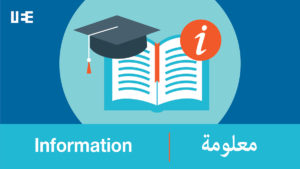Financial assistance and housing subsidies
You are looking for a scholarship, and you are a refugee or have subsidiary protection. You are under 35 years old! Then this article is for you!
Share it so that everyone could have the information!
Who can ask for specific help?
You must be less than 35 years old on September 1st of the year when applying for special assistance (annual allowance or one-time assistance).
There is no age limit for students with a disability recognized by the Commission for the Rights and Autonomy of Disabled People.
The annual allowance
This assistance is the equivalent of a scholarship based on social criteria. It allows you to be exempted from university registration fees and the Campus and Student Life Contribution (CVEC).
What conditions must you meet?
To receive an annual stipend, you must meet the conditions for a social scholarship.
You must fulfill the same attendance requirements as a scholarship student (including in case of serious illness, study abroad, etc.). For more information, see the page dedicated to the rights and obligations of social scholarship students.
Specific annual assistance cannot be combined with a scholarship based on social criteria. However, it can be cumulated with an international mobility grant, a one-time grant, and a merit-based grant.
What are the typical cases of students receiving an annual grant?
Students in a situation of proven autonomy who no longer benefit from their parents’ material support. This situation is assessed based on the following elements: attestation of a separate domicile, separate tax notice or, failing this, separate tax return, and the existence of regular income linked to a salaried activity of an annual amount at least equal to 3 SMIC net. These 3 SMICs must be collected over the last 12 months preceding the application for the annual allowance. The absence of material support by the parents must be justified. When provided for by a court decision, the payment of alimony to the student is not an obstacle to the allocation of an annual allowance for autonomy.
– the student in family breakdown. A social assessment attests to his/her situation of isolation and precariousness.
– Students returning to school after the age of 28 who do not have resources exceeding the ceiling provided for in the scholarship allocation scale, provided that the person concerned does not receive other assistance (unemployment benefit, income support). This resumption of studies must be part of a professional project.
– the French student or a national of a European Union Member State other than France, of a State party to the European Economic Area or of the Swiss Confederation living alone on French territory and whose declared income from the family living abroad does not allow the right to a scholarship to be assessed.
– the student raised by a member of his family without a court decision (uncle, aunt, grandparents, for example),
Any particular difficulty not provided for above and not allowing to benefit from a grant based on social criteria may give rise to the payment of an annual allowance if the commission deems it legitimate.
How to apply for a specific annual grant?
You must first apply for a grant as part of the student social file (DSE). In it, you will explain your particular situation.
How is the specific annual aid paid?
By default, the annual allowance will be paid to you from September to June in 10 monthly installments. Its amount corresponds to one of the social criteria bursary levels (except for the zero levels) when paid over 10 months.
However, it can be paid over less than 10 months if your situation justifies it. In any case, it must be paid for at least 6 months. In the case of a payment of fewer than 10 months, each monthly payment is equal to 1/10th of the aid’s annual amount.
In some cases, the annual allowance may continue to be paid during the university summer vacations, under the same conditions as the social criteria grant. For more information, see our page on the duration and payment terms for social grants.
A new annual allowance may be awarded the following year under the same conditions and within the limit of the total number of rights provided for higher education scholarships based on social criteria.
The annual allocation is equivalent to a right to a scholarship. It gives the right to exemption from university tuition fees and student social security contributions.
The original article on the website of CROUS de PARIS
In this video, Ahmed presents the steps to be taken to apply for a visa.


